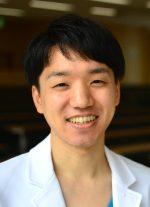Poster title
Add-on Effect of Japanese Style Acupuncture to Standard Treatment for Major Depressive Disorder and Bipolar Disorder : A Retrospective Cohort Study
Presentation summary
Co-Authors :
– Yuto Matsuura, Department of Acupuncture and Moxibustion, Tokyo Ariake University of Medical and Health Sciences,Tokyo, Japan
– Seiji Hongo, Himorogi Psychiatric Institute, Tokyo, Japan
Introduction :
The study aim was to evaluate the effectiveness of incorporating Japanese style acupuncture into standard treatment for mood symptoms in patients with major depressive disorder (MDD) and bipolar disorder (BD).
Methods :
Study Design : Retrospective cohort study with three 12-week periods: a run-in period (standard treatmentonly), a combined treatment period (standard treatment with acupuncture), and a follow-up period.
Participants : Inclusion criteria included I) a diagnosis of MDD or BD according to the DSM-5 criteria ;
II) age ≥18 years ;
III) lack of improvement or remission despite adequate treatment with at least two types of medications for 4 weeks before acupuncture.
Acupuncture Treatment : This study employed a hybrid acupuncture approach that combined fixed and individualized acupoint selection, in accordance with Japanese acupuncture practices. Individualized treatment was provided to address patient-specific physical symptoms, based on physical examinations including palpation. Acupoint selection was guided by patients’ responses to manual assessment. This approach reflects the principles of Japanese acupuncture, which emphasize fine-needling techniques, patient comfort, and individualized responsiveness to physical conditions1).
Outcome Measures : The primary outcome was depressive symptoms, assessed with the Himorogi Self-Rating Depression Scale (HSDS)2).
The secondary outcomes included anxiety symptoms, assessed using Himorogi Self-Rating Anxiety Scale (HSAS)3), and medication conversion rates.
Results :
A total of 15 patients with MDD and 21 with BD were included. HSDS scores significantly decreased in patients with MDD at weeks 8, 12, 16, and 20 and in patients with BD at week 12 (p < 0.05). HSAS scores also significantly decreased in patients
Conflict of interest
No

matsuuray@tau.ac.jp